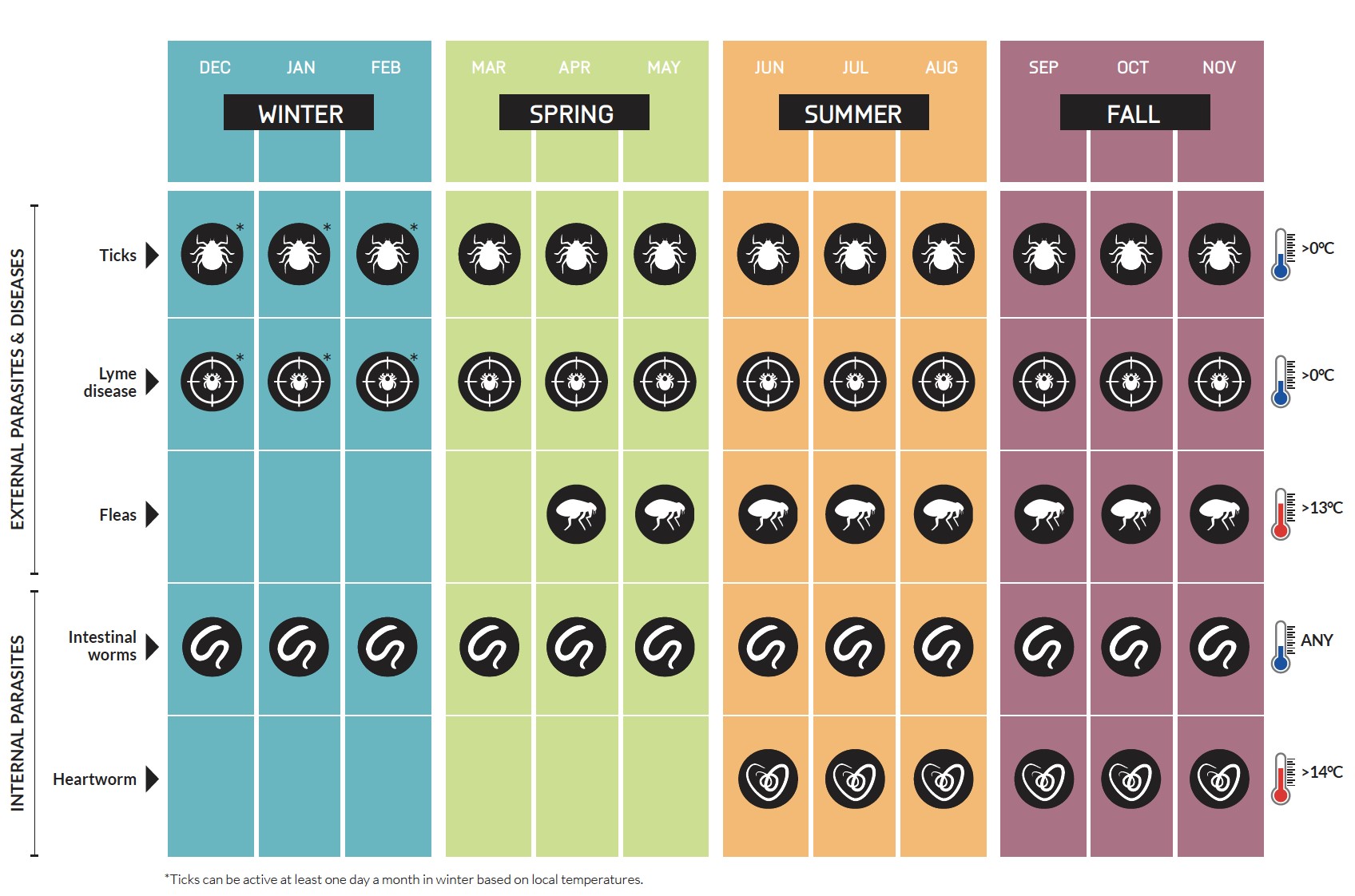HEALTH & WELLNESS

VOTING BOOTH

TRENDING

LIONS FOUNDATION OF CANADA DOG GUIDES
Lions Foundation of Canada Dog Guides and its founding program, Canine Vision Canada, was established in 1983. It’s the largest school of its kind in Canada with its training school in Oakville and breeding facility in Breslau.
Every Season Is Parasite Season

While the risk of parasite infestation does increase with rising temperatures, you can’t count on cooler weather to keep your pets and the rest of your family safe. Especially with the ongoing expansion of tick populations in Canada.
But ticks (and the nasty diseases they can carry) are not the only problem. Other external parasites that should concern you are fleas.
Then there are internal parasites – those small organisms that love to live in the intestines, stomach and other internal organs of pets. Internal parasites to worry about include heartworm and intestinal worms.
WHEN ARE PARASITES ACTIVE?
TICKS: Ticks can be active whenever the temperature is above freezing (0°C). When they’re active they can spread Lyme disease.
FLEAS: Fleas are active when the temperature is above 13°C, but indoors they can be active year-round!
HEARTWORM: Heartworm can be spread by mosquitoes whenever the temperature is above 14°C.
INTESTINAL WORMS: Some intestinal worm eggs can survive in the environment at ANY temperature.
With the above in mind, you can understand why it’s important to make sure your pets are protected throughout the year.
PARASITES AND SEASONS
During the summer months (June, July and August) as well as the fall months (September, October and November) the following parasites and diseases pose a real risk to pets:
- Ticks
- Fleas
- Heartworm
- Lyme Disease
- Intestinal Worms
During the winter months (December, January and February) the following parasites and diseases pose a real risk to pets:
- Ticks
- Lyme Disease
- Intestinal Worms
During the spring months (March, April and May) the following parasites and diseases pose a real risk to pets:
- Ticks
- Lyme Disease
- Intestinal Worms
- Fleas (less risk in March)

YEAR-ROUND PROTECTION IS VITAL
So, as you can see, year-round protection against the majority of parasites and diseases mentioned above is imperative.
The best way to protect your pets and the rest of your family is appropriate parasite control products suited to your pets. Factors to consider include age, location, health status and lifestyle.
Be sure to consult with your veterinarian for a comprehensive treatment that protects your pet against the most common kinds of parasites.
![]() Don’t wait—take action now! Schedule a deworming appointment with your veterinarian. Stay informed about the best preventive measures. Your dog’s health and your family’s safety depend on it! Find a veterinarian near you.
Don’t wait—take action now! Schedule a deworming appointment with your veterinarian. Stay informed about the best preventive measures. Your dog’s health and your family’s safety depend on it! Find a veterinarian near you.
Related Articles
Are You Fighting Fleas? Read Now
FAQs About Heartworm in Pets Read Now
Fleas, Ticks, Lice and Mites on Cats Read Now
Tackling Ticks and Fleas in Your Garden Read Now
An Overview: Control of Feline Parasites Read Now
Common Canine Fleas and Ticks in Canada Read Now
Worms in Cats: Intestinal Parasitic Infection Read Now
How Tapeworms Affect Pets and Their Owners Read Now
Are Cats More at Risk for Worms in Warmer Weather Read Now
Kittens and Intestinal Parasites: Symptoms and Causes Read Now
Protect Your Dogs Against the Danger of Mosquitoes this Summer Read Now








